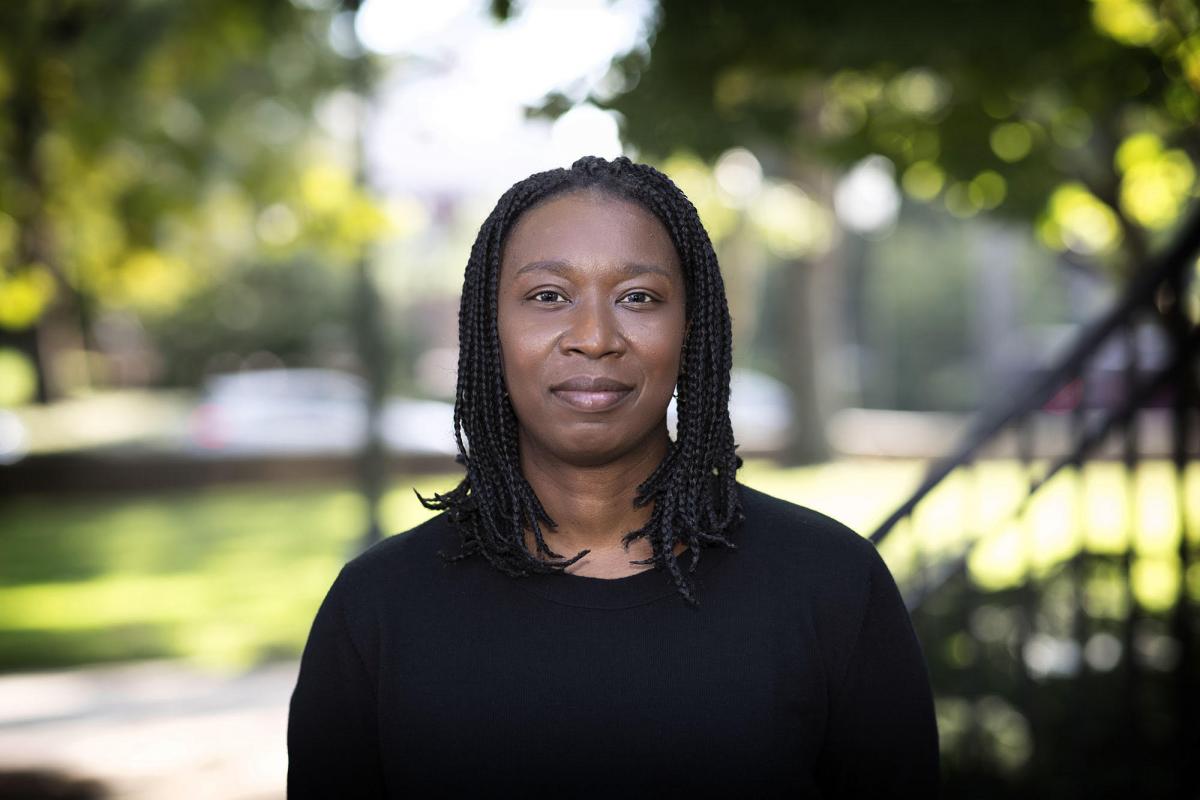
The UVA McIntire Department of Music presents a colloquium by Claudrena N. Harold at 3:30pm on Friday October 12th in room 107 Old Cabell Hall. The talk is free and open to the public.
Claudrena N. Harold is a professor of African American and African Studies and History. In 2007, she published her first book, The Rise and Fall of the Garvey Movement in the Urban South, 1918-1942. In 2013, the University of Virginia Press published The Punitive Turn: New Approaches to Race and Incarceration, a volume Harold coedited with Deborah E. McDowell and Juan Battle. Her latest monograph is New Negro Politics in the Jim Crow South, which was published by the University of Georgia Press.
In 2018, she and Louis Nelson coedited the volume, Charlottesville 2017: The Legacy of Race and Inequity.
As a part of her ongoing work on the history of black student activism at UVA, she wrote, produced, and co-directed with Kevin Everson six short films: Sugarcoated Arsenic, Fastest Man in the State, 70 kg, U. Of Virginia, 1976, How Can We Ever Be Late, and We Demand. These films have screened at the National Gallery of Art, the Whitney Museum, Berlin International Film Festival, the International Film Festival Rotterdam, the Oberhausen International Short Film Festival, the London Film Festival, the Edinburgh International Film Festival, Vienna International Film Festival, New York Film Festival, Festival du Nouveau Cinema, the Media City Film Festival, and Porto Post Doc Film and Media Festival.
Abstract
When Sunday Comes: The Artistry, Politics, and Commercial Triumphs of African American Gospel Music, 1968-1994
On February 2, 1972, six thousand mourners jammed into Arie Crown Theater in Chicago, Illinois for the public funeral of gospel icon Mahalia Jackson. Covered extensively in both black and white newspapers, Jackson’s Chicago funeral was but one event in a weeklong period of mourning. Four months after the gospel music industry mourned the death of its most beloved star, one of Jackson’s mentees, the Reverend James Cleveland, convened the fifth annual convention of the Gospel Music Workshop of America (GMWA) in Los Angeles, California. Fueled by the artistic brilliance and personal sacrifices of Mahalia Jackson and other gospel legends, as well as their own creative ambitions, Cleveland and many of the attendees at the GMWA convention were unequivocal in their commitment to ensuring the growth of gospel as both an art form and commercial enterprise.
The gospel industry experienced monumental growth and change during the last three decades of the 20th century. Enjoying popularity within and beyond the religious world, gospel stars became household names in black communities across the nation and throughout the larger African diaspora. My paper examines gospel’s growth and change from a sociohistorical perspective. It contextualizes gospel music’s creative shifts, sonic innovations, theological tensions, and political assertions within the larger framework of the socioeconomic and cultural transformations taking place in black America. It also examines the ways in which the music has provided an outlet for African Americans to express their spiritual, cultural, and regional identities. Very much like the artists who occupy the center of my narrative, this book project takes the music seriously by paying close attention to its formal qualities, detailing some of the heated debates among musicians, fans, and journalists over the aesthetic merits of certain sonic shifts, and documenting the public’s reception to groundbreaking recordings.
Old Cabell Hall is located on the south end of UVA's historic lawn, directly opposite the Rotunda (map). Parking is available in the Central Grounds parking garage on Emmet Street, in the C1 parking lot off McCormick Rd, and in the parking lots at the UVA Corner. Handicap parking is available in the small parking lot adjacent to Bryan Hall.
All programs are subject to change.